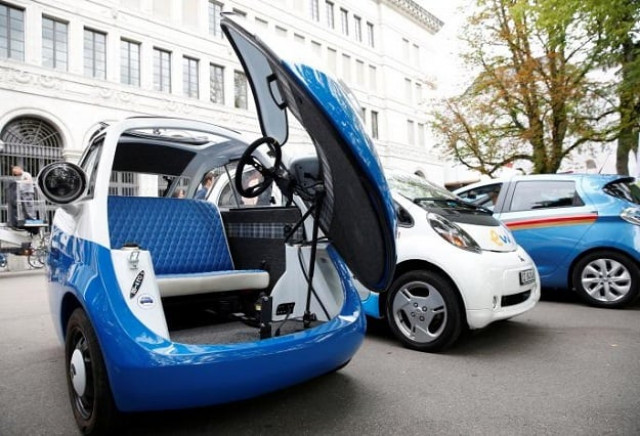Electric car boom won’t spell ‘end of oil’: IEA chief
Says oil will still be needed for ships, planes and trucks

PHOTO: REUTERS
IEA Executive Director Fatih Birol told AFP in an interview that the growth of electric cars was starting from a very small base and oil would still be needed for ships, planes and trucks. Focus on the game-changing potential of electric cars has increased dramatically in the last weeks.
Could Apple's next big thing be a car?
France said it will end sales of petrol and diesel vehicles by 2040 and Volvo Cars plans to start phasing out production of conventional petrol-only cars from 2019, with all new models to be electric or hybrid from that date.
“Today, many people talk about electric cars - rightly so because electric car sales are increasing. Last year we have seen a record in the sale of electric cars,” said Birol, whose inter-governmental organisation seeks to ensure a reliable energy supply for its member states.
But even on these record sales, the number of electric cars today has only reached two million, just 0.2% of the global car fleet. “It will grow but it will not bring us the end of the oil era,” he said on the sidelines of the World Petroleum Congress in Istanbul. “Oil demand will be driven by trucks, aviation, jets, ships and, very importantly, the petrochemical industry.”
The oil industry has over the last years been buffeted by the low price of crude and also pressure for a reduction of emissions in line with the Paris Agreement on fighting climate change.
Hyundai unveils new small SUV, electric version to arrive next year
Meanwhile, interest in renewable energy has surged, raising questions over whether demand for oil will run out even before resources are exhausted.
Published in The Express Tribune, July 12th, 2017.
Like Business on Facebook, follow @TribuneBiz on Twitter to stay informed and join in the conversation.



















COMMENTS
Comments are moderated and generally will be posted if they are on-topic and not abusive.
For more information, please see our Comments FAQ